Repetitive Strain Injury Syndrome
Repetitive Strain Injury Syndrome Treatment
Body Part:
Hand & Arm
Equipment:
Massage Ball, Osteopressure Tool
Level:
Beginner
Repetitive Strain Injury Syndrome
Body Part:
Hand & Arm
Equipment:
Massage Ball, Osteopressure Tool
Level:
Beginner
Nowadays, lengthy sessions in front of the computer are widespread: whether it’s at work or during your free time, we’re constantly clicking and typing away. Sooner or later, these repetitive movements will take their toll on us, however. Suddenly your hands, wrists, arms, and even the shoulder might start to hurt. Doctors are having a hard time locating the origin of the pain and there’s no known way to fix the issue. Though, is it really hopeless? Certainly not. We’ve got some aces — or rather exercises — up our sleeves to help you with your repetitive strain injury syndrome (RSI syndrome).
If you do these regularly and consistently over a longer period of time, the pain might vanish in no time at all. Read more below!

Sign up for our free newsletter and discover how to manage your pain yourself. Every two weeks, we’ll deliver follow-along videos and articles to your inbox.
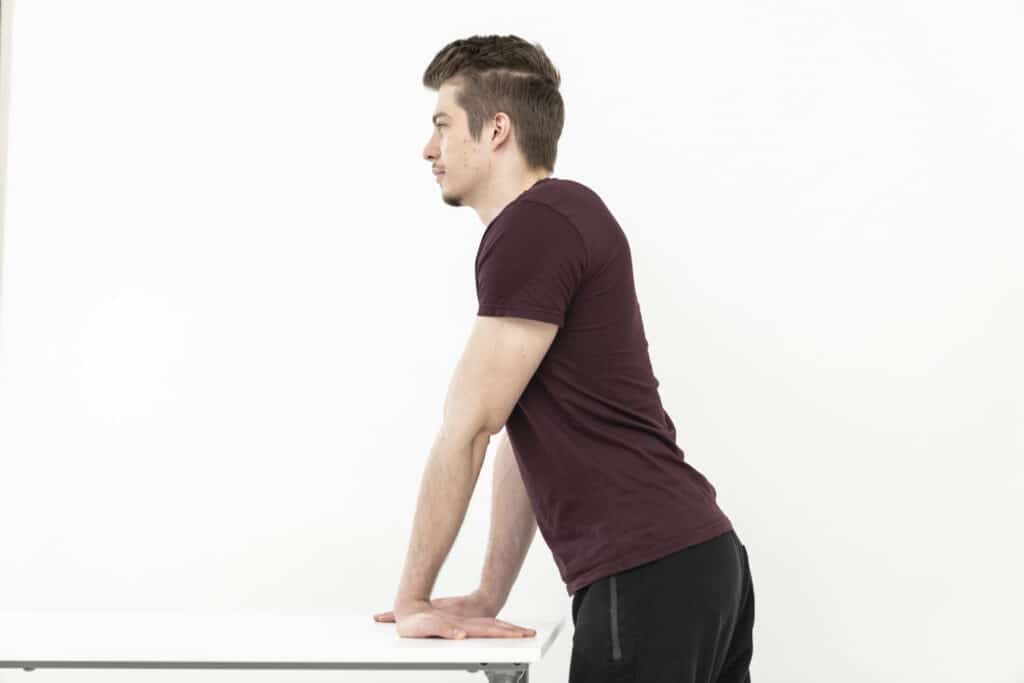
1. Stand at a desk and place your palms on the table top. Turn the palm of your hurting arm so your fingers point toward your knee. Make sure that your palms and fingers are positioned firmly on the table top and your elbows stretched through.
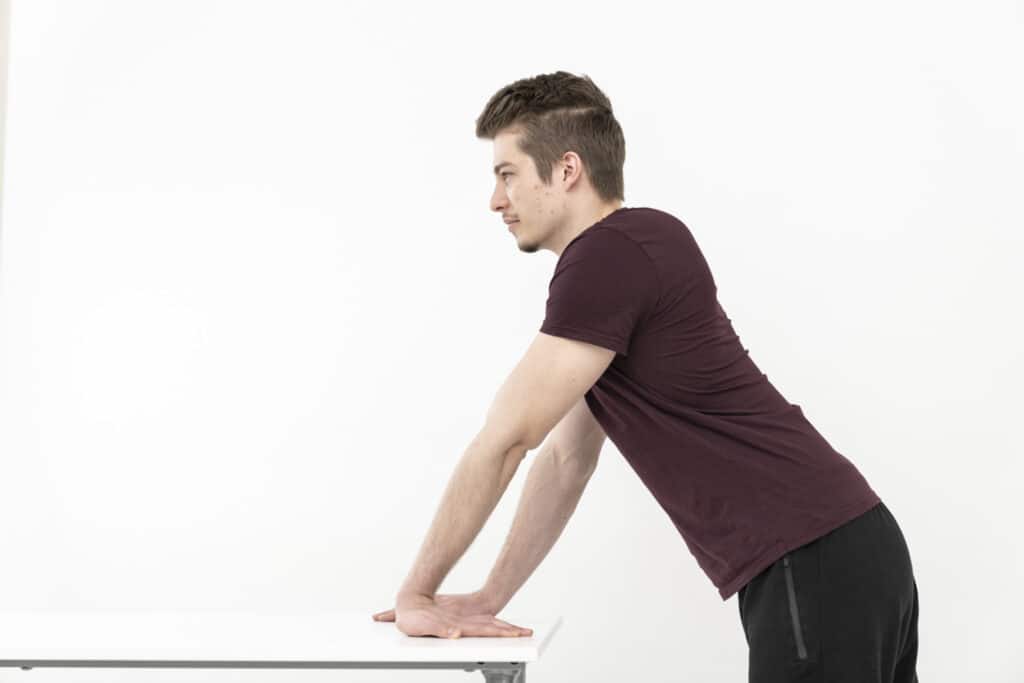
2. Take a step away from the table and lean back with your upper body. By doing this, you can stretch the muscles of your lower arms better. Do not lift your wrist off of the table during this. Stay in this position for two minutes and try to intensify the stretch every time you breathe.
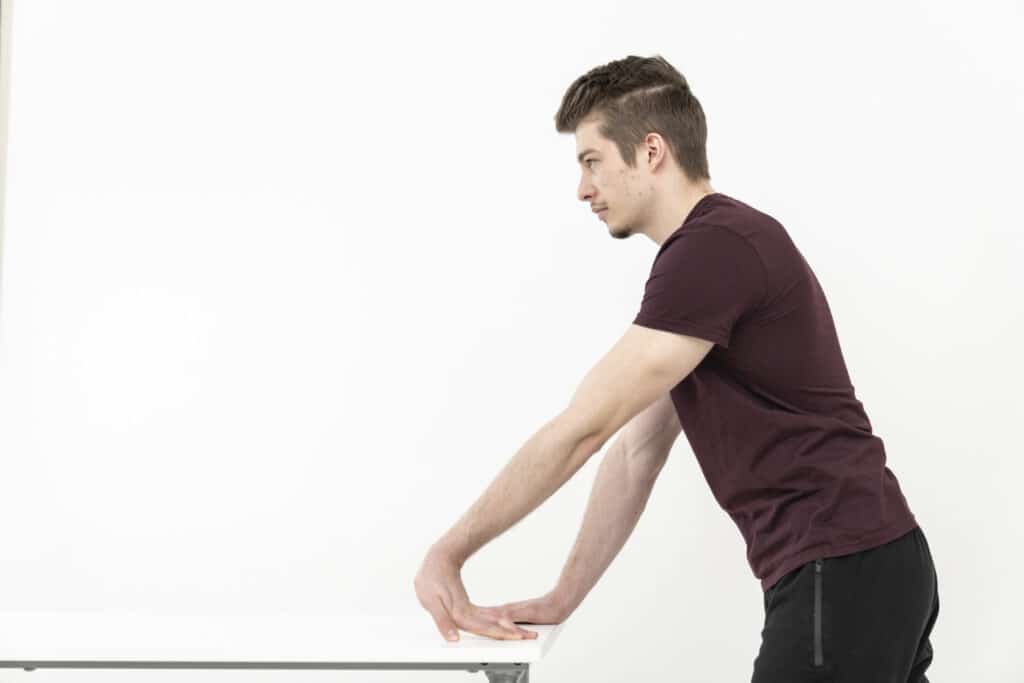
3. Take another step back. You may now lift your wrist off of the table top. Lean onto your fingers and stay like this for two minutes once more. Intensify the stretch every time you inhale.
Is your other arm aching, too? Simply switch sides and repeat the exercise above.
Tip: You can also do this exercise using a door frame instead of a table. Just place your hands on one side of the frame instead of a table top.
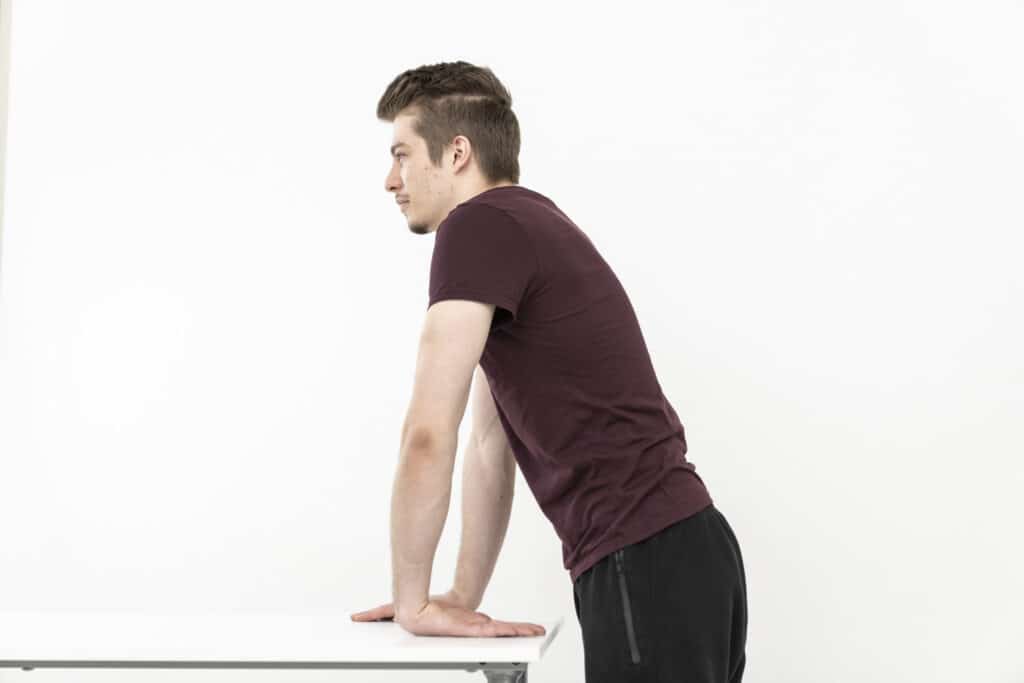
1. Stand next to a desk and place your hands onto a table top again. This time, the palm of your hurting hand should face upward. Your fingers should point toward your knees and your elbow needs to be stretched through.
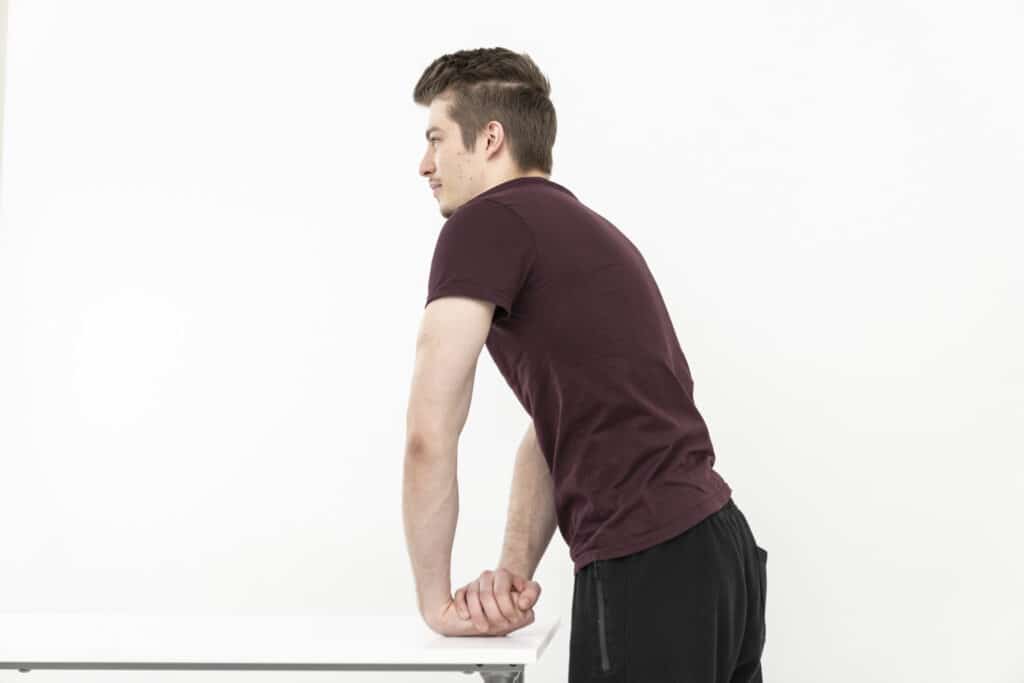
2. Tuck in your thumb and form a fist with your hand. To increase the stretching effect, wrap your other hand around your fist and keep it closed tightly. Stay like this for two minutes.
Once again, if your other hand is hurting as well, do the exercise again for it.
For this exercise, you’ll need our mini massage ball or a similar small round object.
1. Sit down at a table and put your arm onto the table. Place the mini massage ball on the outer side of your arm, just above your elbow.
2. Massage the area around the bony tip slowly yet with intensely. If you find particularly sensitive spots, keep rolling around there for a bit longer.
3. Turn your arm around so you can access the inside of your elbow. Focus on rolling around the bony tip and massage yourself with spiral movements. Make sure you use the maximum amount of pressure here, too. Similarly, prioritize sensitive spots.
4. Each massage round should last for two minutes. If you’re having difficulties with the other arm, repeat the exercise for it, too.
To make the most of this exercise, you’ll need our osteopressure tool or a cork stopper. If you have our osteopressure tool, use the spherical handle with the flat bit.
1. Sit down at a table and put your right arm on it, with the thumb pointing upward — as if you’re about to shake hands with someone. Use your left hand’s fingers to find the bone near your elbow.
2. Take the Pain Releaser and place it onto the upper area of your lower arm. Press down with moderate strength. Look for a particularly painful spot and remain there for two minutes to release the pain.
3. As soon as the pain subsides, you may try alternative angles and move closer to the elbow or the hand. Keep in mind that the areas near the elbow will get increasingly more sensitive.
4. Repeat this exercise for the other arm if it aches, too.
Then we would be happy if you shared it with your friends:
